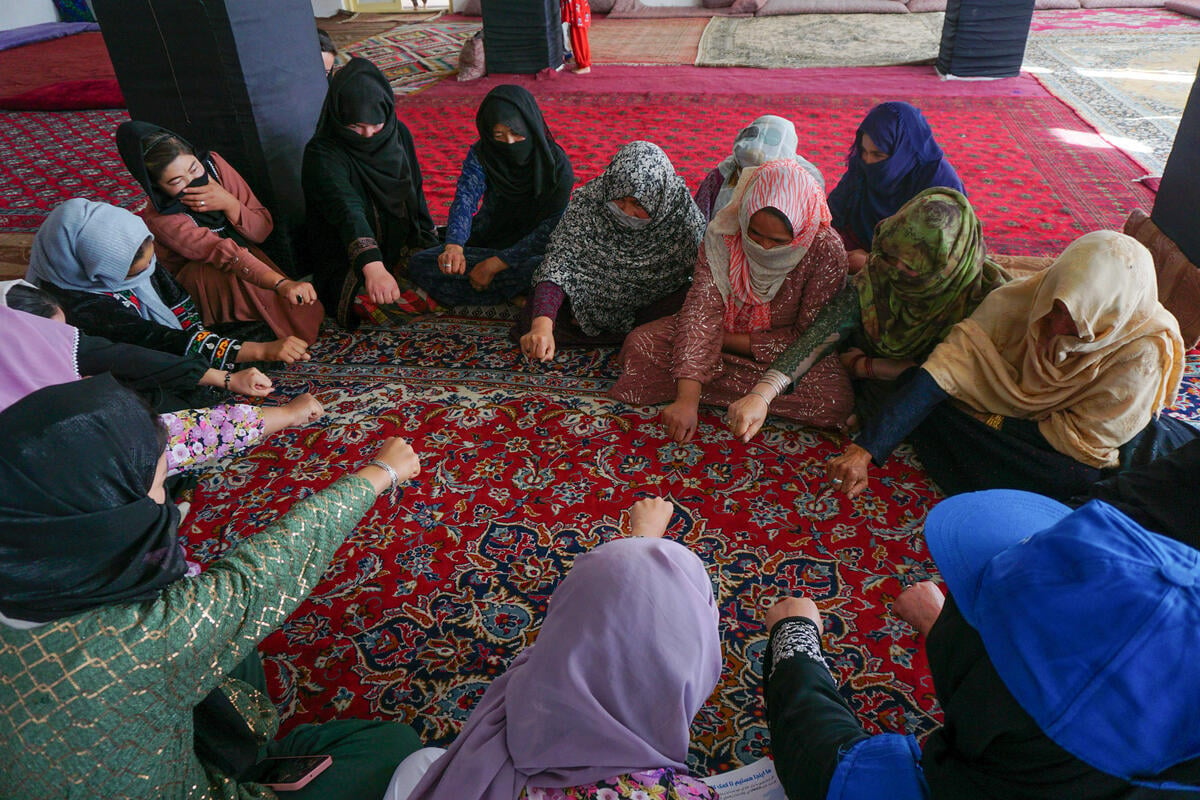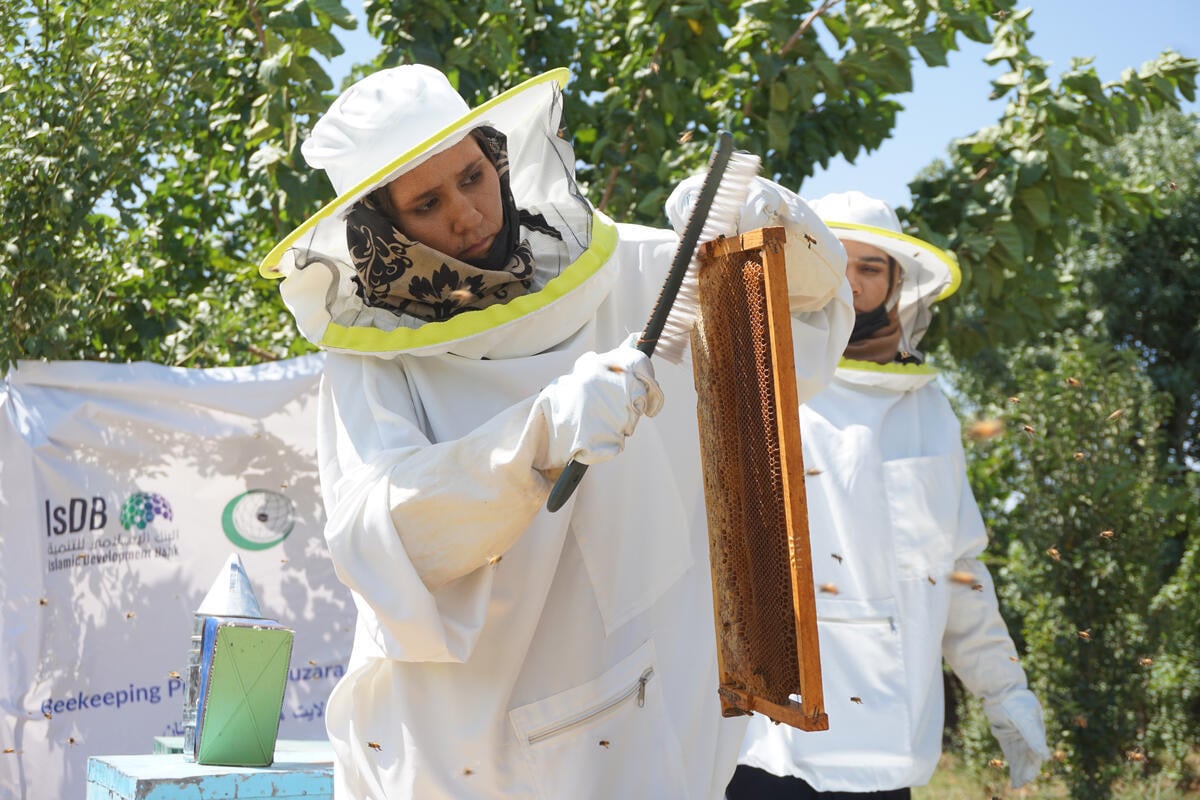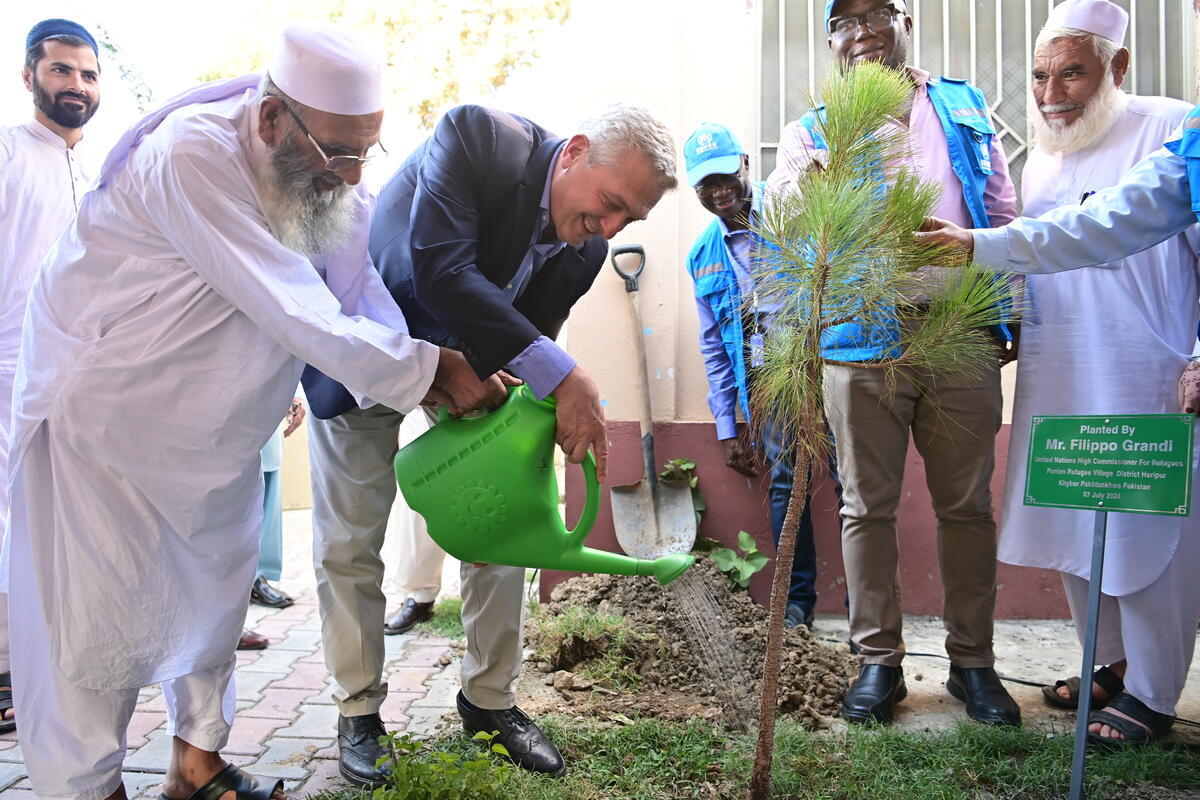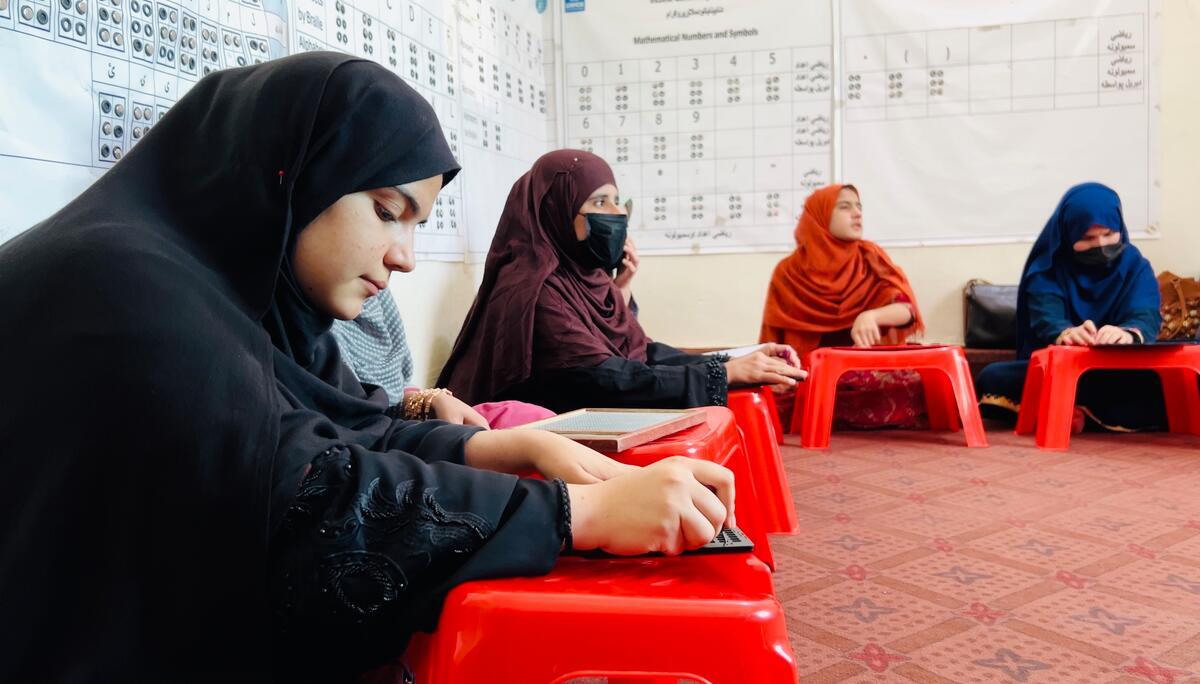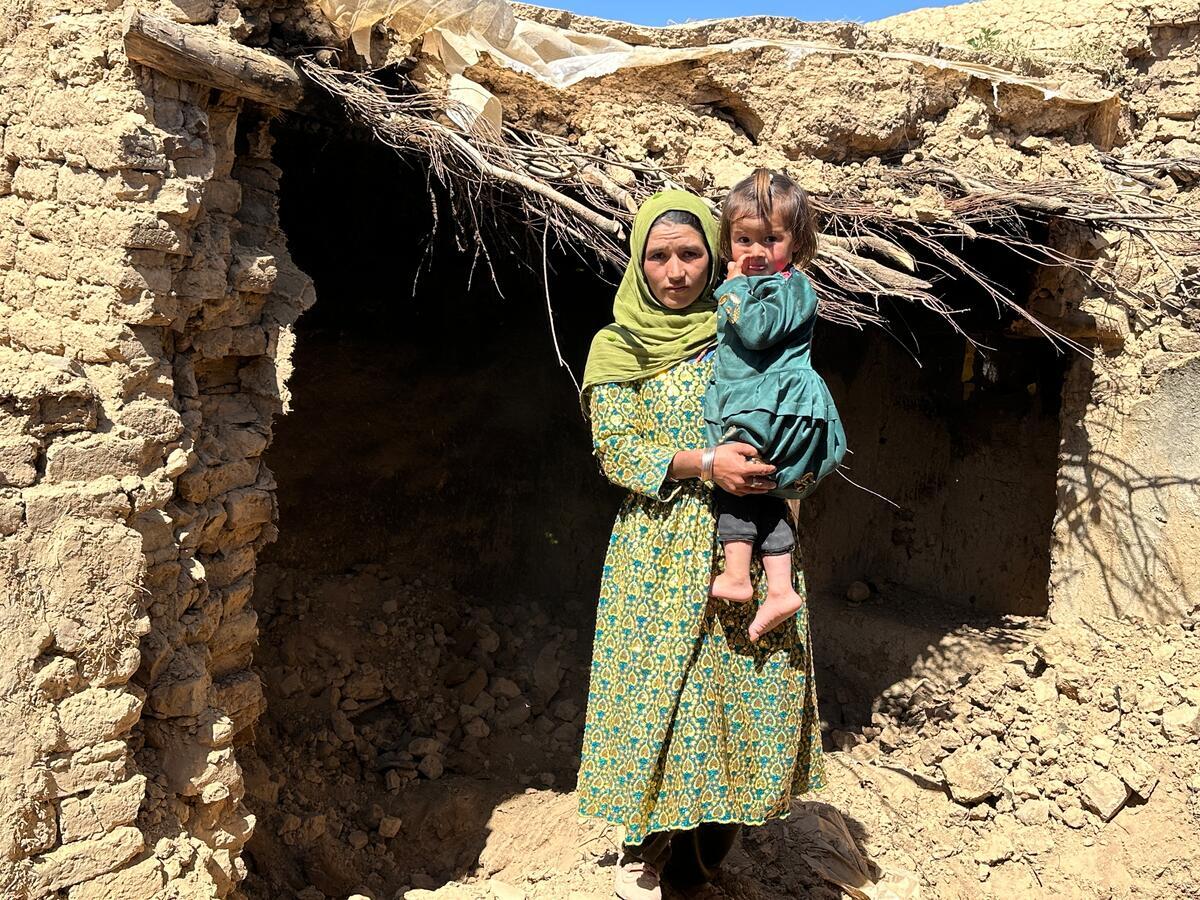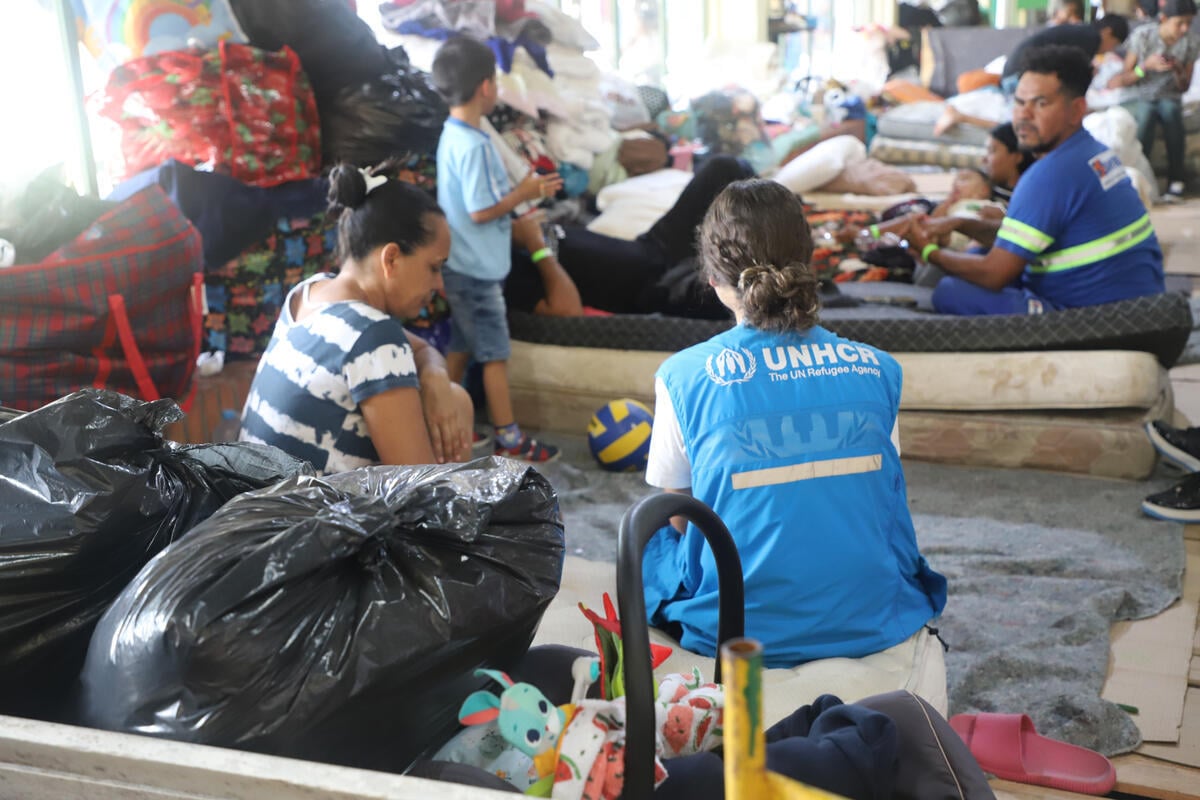Afghanistan Humanitarian Update No. 61
Afghanistan Humanitarian Update No. 61
30 May 2002
At a Glance:
- More than 800,000 return in less than three months
- Funds running short, threatening reintegration
- Food stocks low, exacerbating difficulties
More than 800,000 return in less than three months
More than 800,000 people have returned to Afghanistan since the Interim Administration and UNHCR began facilitating voluntary returns on 1 March, with more than 730,000 Afghans repatriating from Pakistan, 60,000 from Iran and almost 10,000 returnees from Tajikistan and Turkmenistan. More than 100,000 other Afghans are believed to have repatriated outside UN channels since late 2001.
The return is the largest and fastest the UN refugee agency has witnessed since 800,000 refugees returned to Kosovo in mid-1999. The pace of the return has exceeded expectations and strained aid agency resources as well as Afghanistan's absorption capacity.
UNHCR planned to help up to 1.2 million Afghans home this year, and had estimated that only 800,000 refugees would opt to return from abroad and that another 400,000 internally displaced persons (IDPs) would return to their home areas this year. Due to the scale of its assisted return movement, the UN refugee agency this week is reviewing the 2002 planning and budget figures.
Pakistan and Iran hosted some 3.5 million refugees when the repatriation started, with several hundred thousand more scattered around the world.
UNHCR does not promote return to Afghanistan, but assists only those Afghans who themselves opt to return home. The security situation in many parts of the country is very fragile, while access to food aid, health care, shelter and adequate water supplies remains limited in many regions. The agency believes that countries in the region and states further afield should not force Afghans home at the present time, nor encourage widespread repatriation without ensuring adequate funding for the relief effort.
Funds running short, threatening reintegration
The pace of the spontaneous returns to Afghanistan, against a backdrop of enormous needs inside the country, is putting great demands on the relief community, and all humanitarian agencies are running short of funds.
UNHCR has received $179 million out of the $271 million needed from October last year to the end of 2002 to aid Afghans returnees and assist refugees in the surrounding states. Due to the number of returnees having exceeded planning figures, the UN refugee agency may have to appeal for even more money.
At present, UNHCR has funding only until the end of June. If fresh contributions do not arrive, the agency will have to consider some very hard choices, for example to stop travel grants, or drastically reduce basic housing and water projects.
Inside Afghanistan, UNHCR's operation is presently in its most costly phase, with expenses at more than $20 million a month. The agency operates nearly 30 offices throughout the country, with more than 400 national and international staff. This makes UNHCR the largest humanitarian actor in the country.
So far, UNHCR has distributed $12 million in cash and provided family kits containing plastic sheets, blankets, buckets/jerry cans, hygienic kits and soap to the more than 800,000 returnees. UNHCR's partner GTZ has 21 distribution centres throughout Afghanistan where returnees participating in the Interim Administration/UNHCR repatriation initiative collect their family kits and other aid. They include five in the Central region (Pul-i-Charkhi, Logar, Charikar, Ghazni and Bamyan), three in the East (Mehtarlam, Asadabad and Jalalabad), four in the South (Lashkargah, Kandahar, Dilaram and Zaranj), two in the West, and seven in the North (Mazar-i-Sharif, Pul-i-Khumri, Kunduz, Sheberghan, Sar-i-Pul, Maimana and Samangan).
Due to the International Organization for Migration's indefinite suspension of its transport programme, UNHCR is introducing a new system of cash grants for returnees from Iran, and will now provide cash grants ranging from $5 to $30 per person depending on their destination.
Some humanitarian agencies are not able to provide much-needed reintegration assistance, severely hampering the sustainability of the return that many refugees and displaced Afghans have dreamed about for decades.
At distribution points in Herat, Kabul and Kandahar, returnees continue to receive a full family package of assorted items, though UNHCR must sometimes substitute some items. The key Jalalabad distribution centre has been forced to ration items; families who receive less than the complete family kit are given coupons redeemable as soon as stocks are available.
Food stocks low, exacerbating difficulties
The UN's World Food Programme reports that in Afghanistan it faces a shortfall of 254,000 metric tons (MT) of wheat worth an estimated $138 million. The agency reports an immediate shortfall of 50,000 MT in June, and warns that there could be a total break in its food pipeline in July. In Jalalabad, Kabul and Herat, returnee families participating in the Interim Authority/UNHCR initiative are currently only receiving 50 kg of WFP wheat, one third the usual 150 kg return allowance.
A recently-released food security survey undertaken in April covering 1,100 families throughout Afghanistan indicates that there is widespread food insecurity. The USAID-sponsored survey found that over the last three years, the percentage of the families in the sample group who were 'food secure' decreased from 59 percent to only nine percent. Although the nutritional insecurity is mainly a result of the four-year drought, this has been compounded by various other factors, as well as the long-time and continuing aid gap.
One issue of major concern to UNHCR identified by the food security survey team was that Afghans who have recently returned home said they had expected to find better conditions in Afghanistan. Enormous swathes of Afghanistan experience food insecurity, and despite recent rainfall in some areas, much of the country lacks adequate water supplies, particularly the south.

